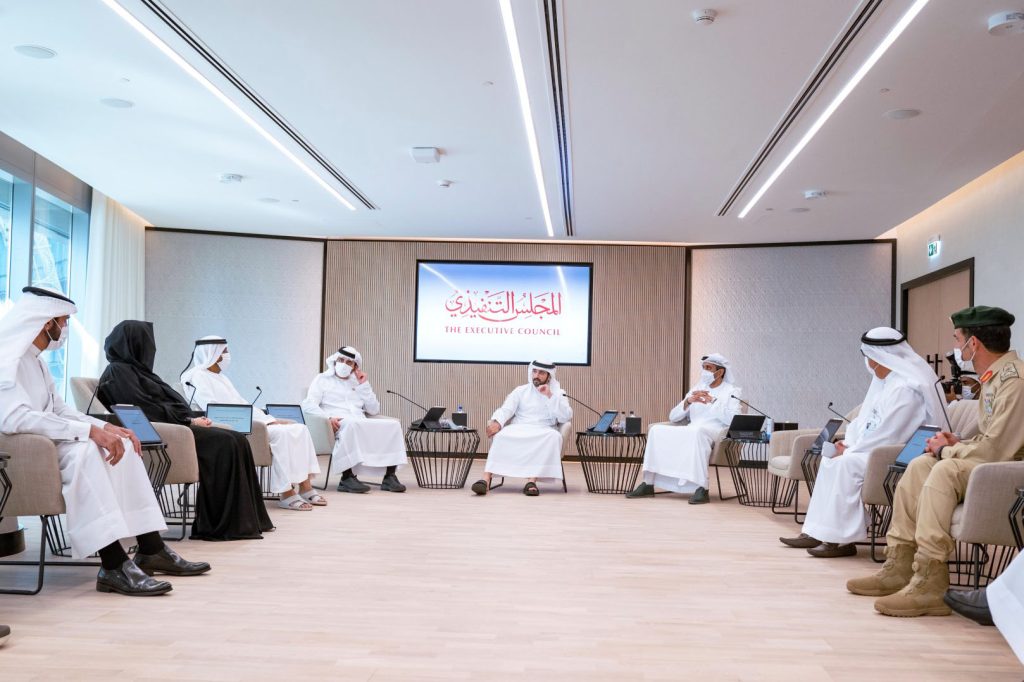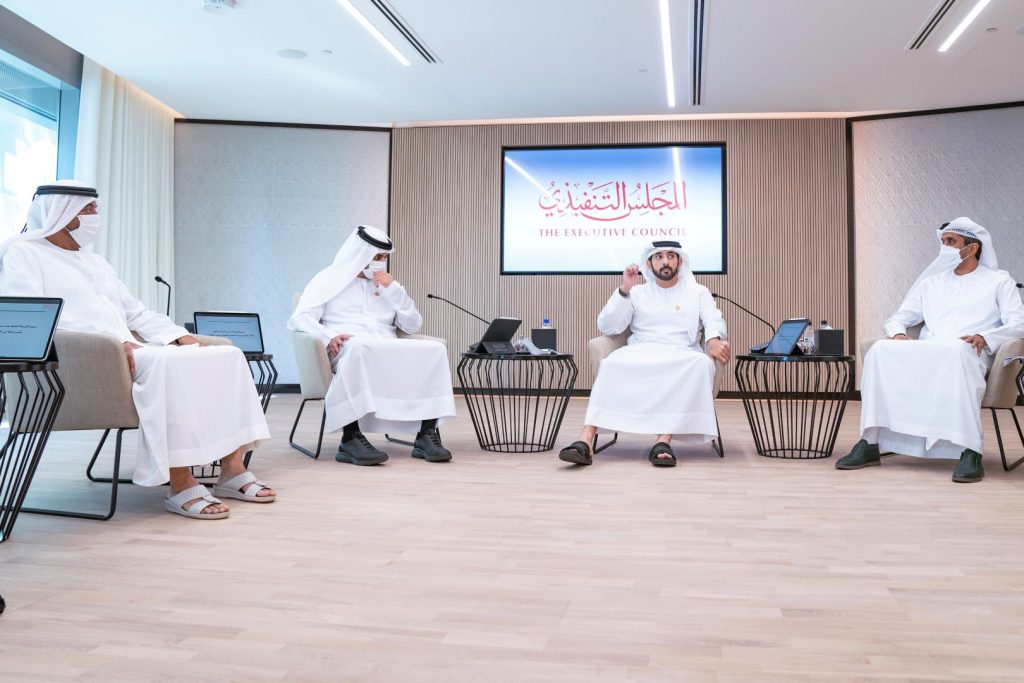DUBAI, United Arab Emirates — H.H. Sheikh Hamdan bin Mohammed bin Rashid Al Maktoum, Crown Prince of Dubai and Chairman of The Executive Council, has said that social responsibility plays a key role in building a strong and cohesive society and enabling the private sector to contribute to Dubai’s development in line with the vision of His Highness Sheikh Mohammed bin Rashid Al Maktoum, Vice President and Prime Minister of the UAE and Ruler of Dubai.
At a meeting held at Expo 2020 Dubai, chaired by Sheikh Hamdan, The Executive Council adopted policies aimed at encouraging corporate social responsibility among private sector companies. H.H. Sheikh Maktoum bin Mohammed bin Rashid Al Maktoum, Deputy Ruler of Dubai, Deputy Prime Minister and Minister of Finance, also attended the meeting.

The Crown Prince of Dubai said: “The deep commitment demonstrated by local companies and the private sector to social responsibility values reflects the vision of His Highness Sheikh Mohammed bin Rashid Al Maktoum to promote partnerships between the private, public and nonprofit sectors with the aim of creating a positive impact on the community.
“The concept of social responsibility represents the commitment of companies to enhance the wellbeing and happiness of the community. Strong partnerships with the private sector, which is a strategic partner in our development journey, is vital to accelerate our development plans.”
He further said: “Many private sector institutions have proven over the years that they are responsible towards the community and are capable of fulfilling their social responsibilities. The most recent example is the collaboration between the private sector and the Dubai Government during the pandemic through the Community Solidarity Fund, to which the private sector contributed more than AED356 million.”

The newly introduced social responsibility policy seeks to raise the role of companies and private establishments in social and economic development and inspire private companies to contribute to the community. The policy also seeks to align their projects and contributions with the priorities set by the government.
During the process of developing the policy, the Community Development Authority (CDA) engaged with stakeholders from the public, private and non-profit sectors to gain a deeper understanding of their expectations. A survey highlighted that 67% of companies’ social responsibility initiatives were in the field of education, while 63% contributed to causes related to the environment, and 58% contributed to empowering people of determination.
Meantime, to promote the use of mass transportation in the emirate, The Executive Council approved the RTA’s joint mobility plan and an electric scooter policy designed to support the use of sustainable transport. The joint mobility plan, which covers the individual’s journey from the ‘first mile’, highlights various means of transportation provided by Dubai’s Roads and Transport Authority to take users to the ‘last mile’ of their journeys.
The joint mobility plan aims to increase the use of public transportation to reach about 35.5% of total sustainable mobility by 2026. As part of the plan, Dubai seeks to legalise and operate multiple means of joint transportation, which will be integrated with the public transportation system.
The Roads and Transport Authority has begun a trial run of several initiatives that support this plan, including the use of electric scooters. Surveys revealed an 82% satisfaction rate in the use of electric scooters in key areas of Dubai. A total of 390,000 electric scooter journeys were made during the period from October 2020 to June 2021. (WAM)

